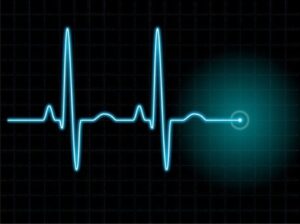Boston-based biometric wearables company WHOOP and the United States Army Paratroopers of the 4th Infantry Brigade Combat Team (Airborne), 25th Infantry Division, “Spartan Brigade”, have announced a new study that will examine the effects of stress and the resilience of soldiers in an Arctic environment.

The study will use real-time physiological data which will be gathered from 1,000 Spartan Brigade paratroopers wearing the WHOOP Strap 3.0 at Joint Base Elmendorf-Richardson in Alaska to study how they train, fight, and manage stress in extreme military conditions, and in the process create a blueprint for future studies.
The WHOOP Strap is capable of 24/7 monitoring in an unobtrusive form factor that is able to withstand the rigors of military use while also being waterproof and sporting a 5-day battery life with on-the-go charging.
The soldiers participating will have their daily strain, sleep quality, recovery rates and more measured as part of the six-month study, which is being conducted with the help of the University of Queensland.
“Previous research has typically focused on investigating stress in laboratory settings using standardized stress tasks,” said Kristen Holmes, VP of Performance Science at WHOOP and Principle Investigator on the study. “We are carrying this study out in the field to better understand how personal, psychological and situational factors can impact a soldier while training during extreme Arctic conditions.”
This continues what has been a busy several months for WHOOP, and is the latest in a number of high-profile partnerships including ones with the PGA, LPGA, and Howard University. Additionally, WHOOP partnered with G42 Healthcare in August of 2020 on a COVID-19 vaccine trial in which participants were invited to wear the Strap 3.0 to track their daily heart rate, respiratory rate, sleep performance data and more, as part of the Whoop4Humanity initiative.
For this new study, the company aims to provide the United States Army with data and insights into the physiological impacts of training in extreme environments in order to better equip soldiers to handle stress and have higher readiness. The data collected will be accessible to all leaders from the squad level as well as NCOs and above, so that training can be adjusted along with operational plans in order to maximize the health and readiness of the teams.
“Imagine as a squad leader that you have a paratrooper that has had an abnormally low recovery for several days,” said Spartan Command Sergeant Major Alex Kupratty. “Maybe your platoon has been in the field for weeks, or the paratrooper just returned from an Army school. Now, you have the data to better help them recover, or to adjust your training to match the team’s needs.”
A unique feature of this study will allow soldiers to have access to their own data — metrics like heart rate variability, resting heart rate, cardiovascular strain, and respiratory rate — as well as techniques aimed at helping them maximize their recovery. They will be able to use these resources to make decisions on how to best optimize their personal performance.
“WHOOP provides seamless and highly reliable biometric capture, thereby producing objective measures of sleep quality and recovery, which are of central importance to our research,” said Dr. William von Hippel, lead investigator on the study and professor at The University of Queensland. “Once the data are analyzed, we hope to uncover insights the military could leverage to enhance training regimens and maximize soldier preparedness.”
The study, which will conclude in May of this year, will have its findings submitted for peer review during the summer.
–
March 1, 2021 – by Tony Bitzionis






Follow Us